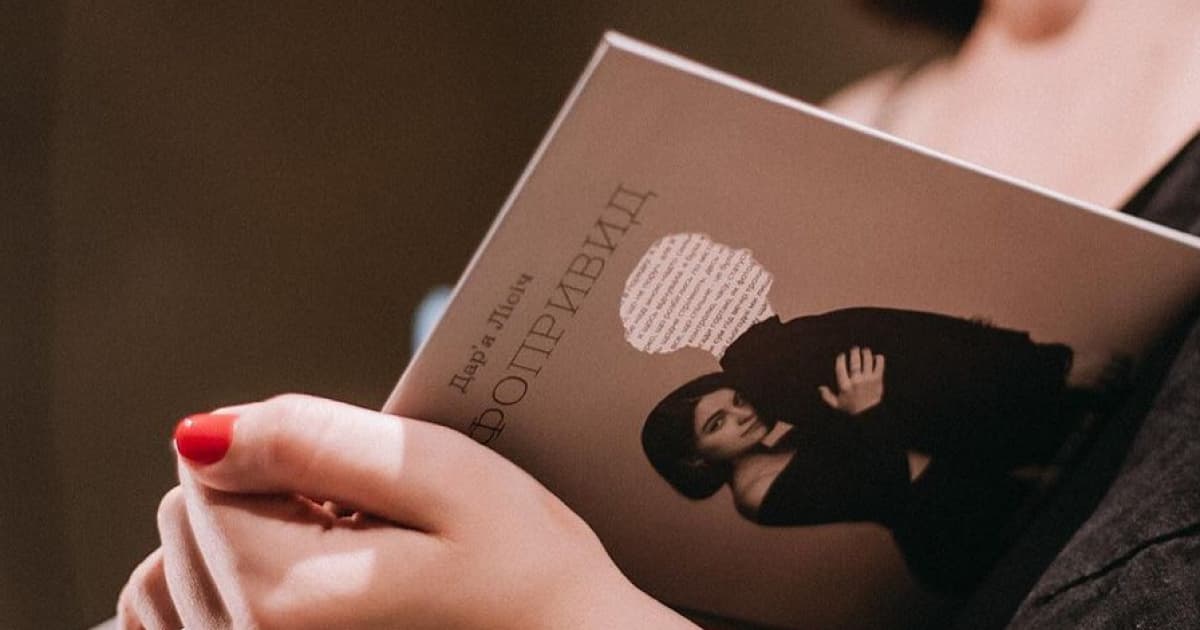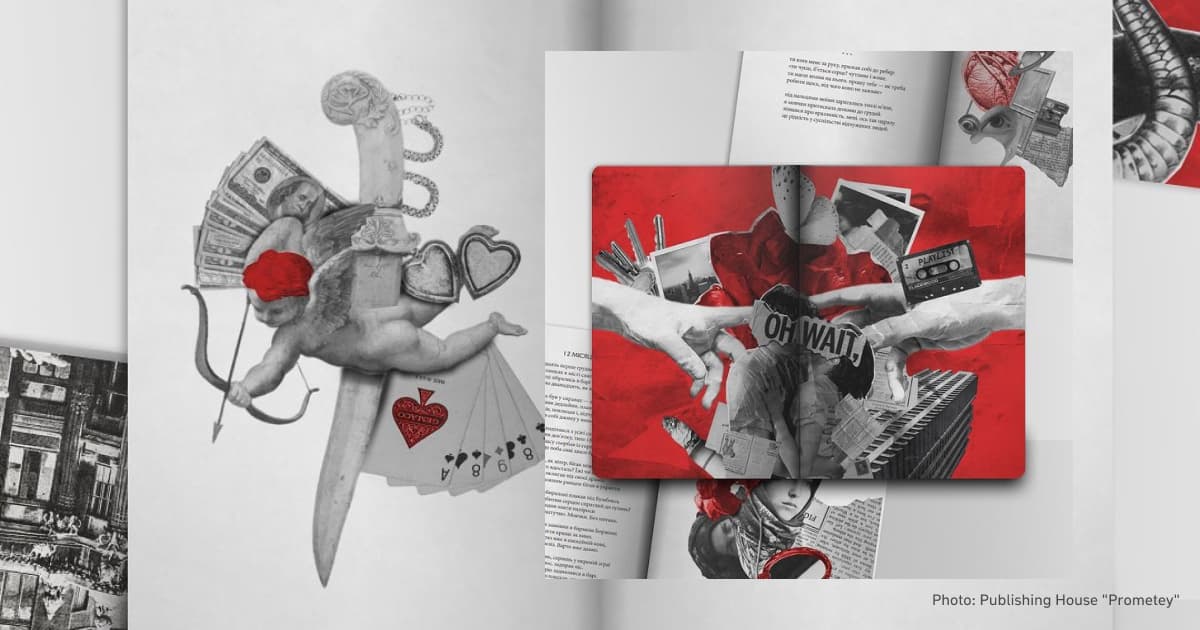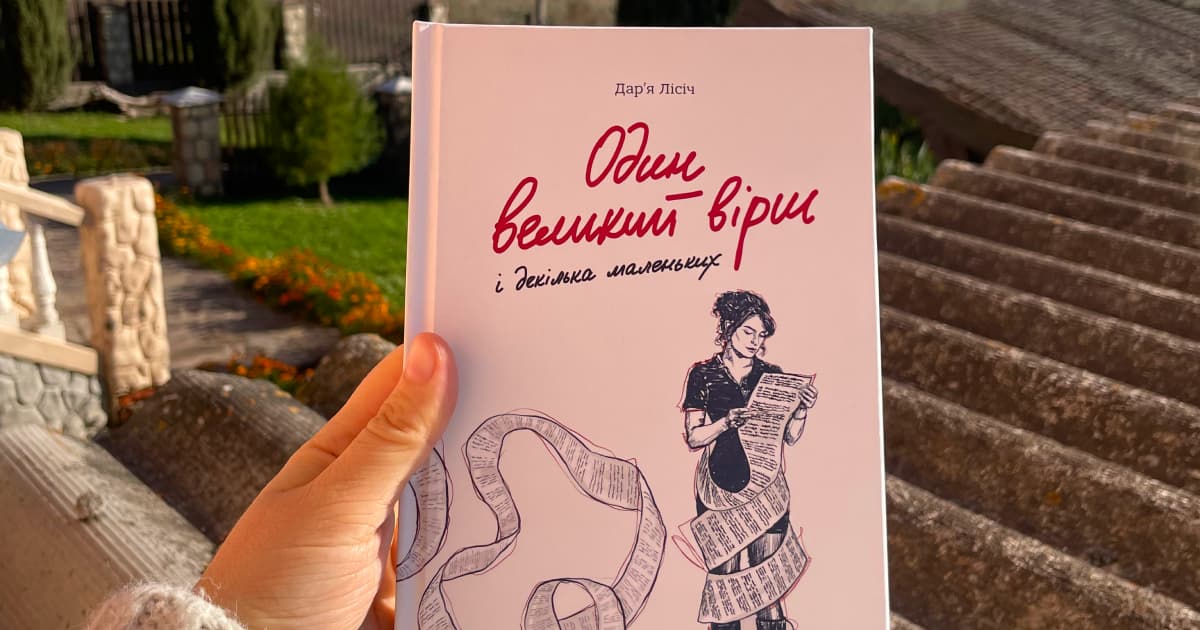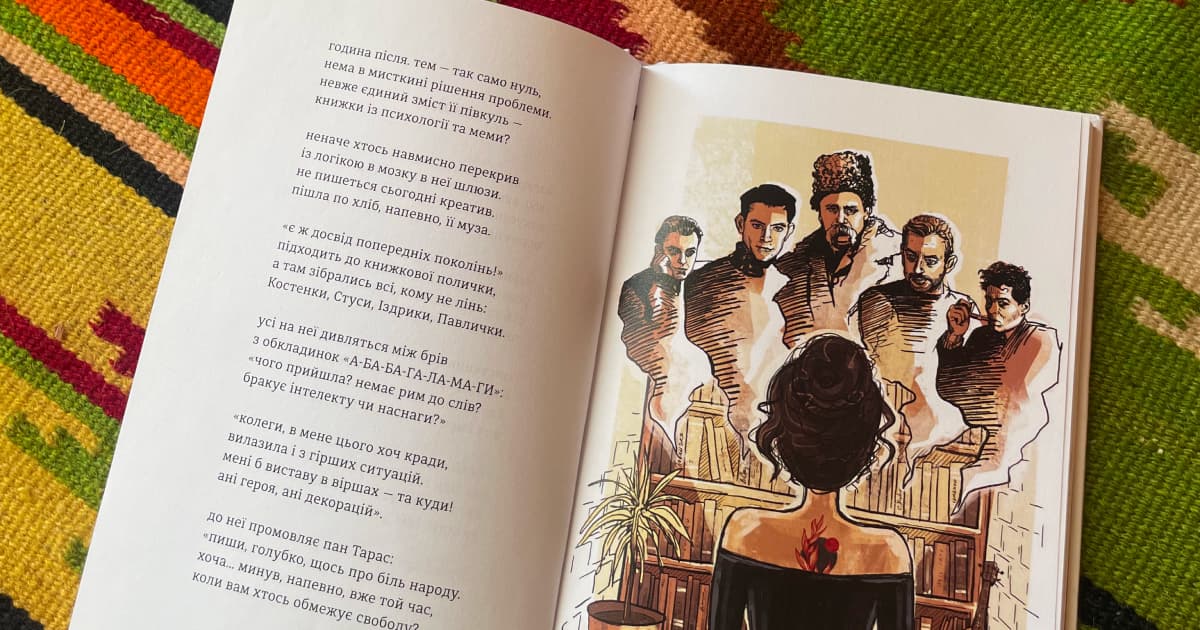"I just let it all happen to me" — Daria Lisich on the poetic process, sharing wartime experiences, and her new collection, One Big Poem and a Few Small Ones
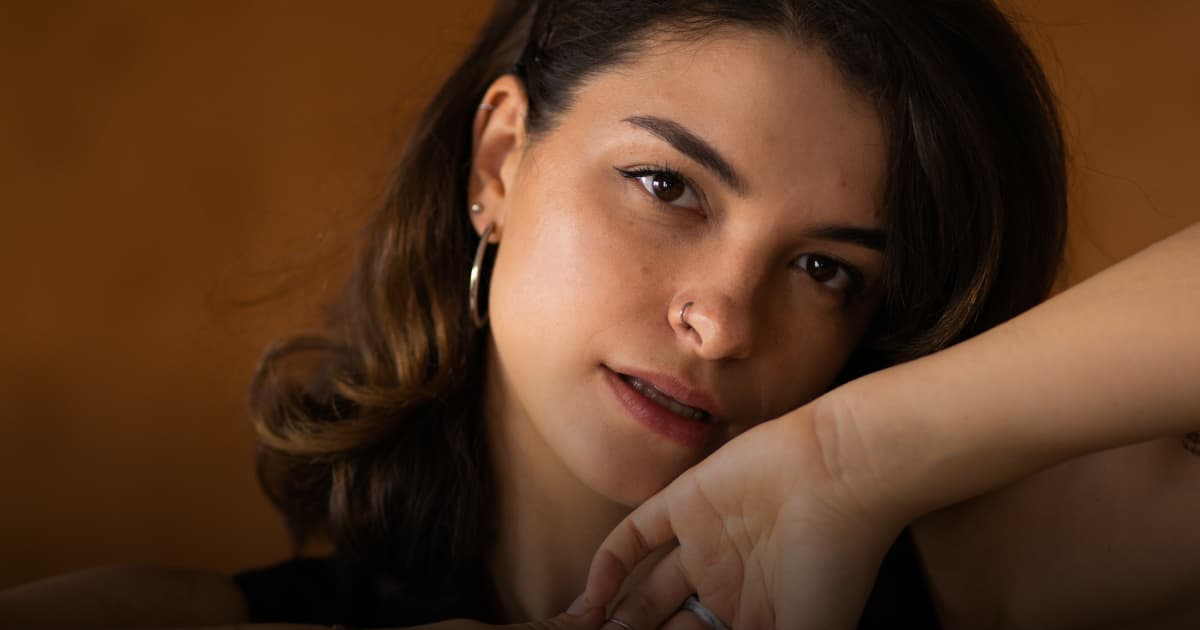
After Russia's full-scale invasion of Ukraine in February 2022, the demand for Ukrainian culture skyrocketed, and new writers and poets responded. Among them is Daria Lisich, a young poet and psychologist.
Her first collection of poems, Infopryvyd, reflects Daria's war experience. Her second collection, One Big Poem and a Few Small Ones, tells the stories of four people connected by common themes: war, love, spontaneity, and life on the home front.
Daria Lisich spoke to Svidomi about her creative process, where she finds inspiration, and how she approaches the experience of war in her poetry.
On storytelling in One Big Poem and a Few Small Ones
My first collection, Infopryvyd, reflects my experiences in 2022, the war, and all those events. Those were my first poetic works when I was still finding my voice. The new collection, One Big Poem and a Few Small Ones, is my attempt to reach a more professional level, to tackle a more complex plot, a real dramaturgy.
In that time, I've grown as an artist and felt I had more to offer people than intimate stories in rhyme. My words now have greater power, and I take on the responsibility of supporting Ukrainians in a context familiar to me and to all of us — the troubled, unstable home front of a country at war.
The characters in this collection are like my children; they are the fruit of my imagination. When I wrote this piece, I felt they already existed in an alternate reality within my poetry. As if I hadn't created them at all. They don't resemble anyone I know. Even now, when I look at each of them in my mind, I see no hint of anyone from my own experience.
Although my characters are fictional, and City N, where they live, doesn't resemble any Ukrainian city, this is about our experience of nightly Russian shelling, about the experience of war. It's important for me to convey this experience, and if this work becomes popular and is published abroad, I want to remind people of the war in different contexts. Just as there is the 'front,' there are stories from the 'home front,' and that's painful, too.
One Big Poem began as a solo performance. I set a deadline, arranged the venue, organized everything, and then started writing. At first, I had one protagonist, and then others joined in. Of course, writing about other people is a challenge for me. But when I wrote the prologue, my favourite part of the collection, I realized that it would write itself, that the puzzle would come together. I had to rhyme it properly to bring these stories into a structure. At first, I didn't know if it would be a humorous or philosophical piece. I just let it happen, and I remember that process very fondly.
On the creative process and audience feedback
I think my art, my poetry, is driven by something more significant than genres, forms, and rhymes. Yes, I adhere to the academic rhythms and rhymes, but I remain true to my own words and worldview. Later, I read that what I do is called "metamodernism. It turns out that I'm a metamodernist. For me, following a cultural movement is more important than a genre. A genre is an individual form out of context, while a movement is the spirit of the times, the masses 'here and now.'
I'm inspired by risk and openness to all experiences. This Big Poem and a Few Small Ones was a challenge I called: "Can I write a dramatic piece in verse in 3 weeks and gather over 100 people for a public reading of it? Oh yes. The reality exceeded my expectations many times over.
Despite publishing a second collection of poems, I still share my poems on Instagram and my Telegram channel. It's because I enjoy watching the reactions of my audience. I recently posted a poem and put my phone away for a day. I came back and found 87 comments. They were diverse, and I love it when people debate my poems because I sometimes raise controversial issues.
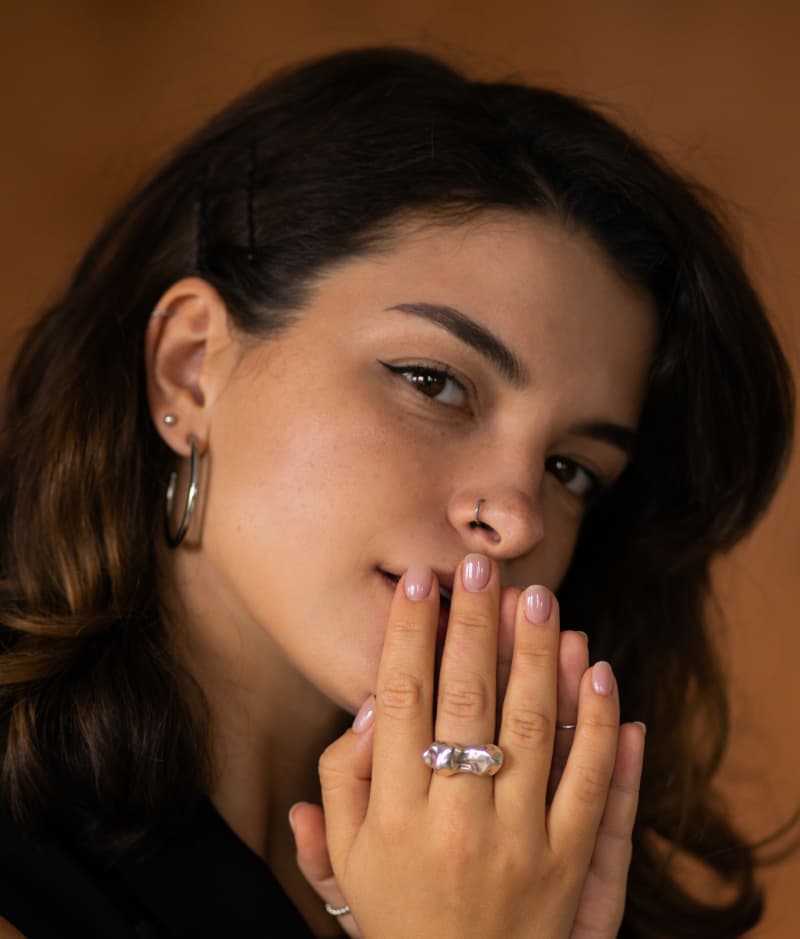
I would love to see poetry become more than just a literary genre. I would like to see it become a social phenomenon. And maybe, with more recognition, I might change my mind about publishing my poetry openly.
On triggering topics, live meetups, and Poems for Strangers
I address issues of feminism and LGBTQ+ issues in my poetry. For me, these are fundamental, like speaking Ukrainian in Ukraine. I feel like a person who cares about prejudice. It seems that not supporting restrictions on people's rights based on gender or orientation is just a healthy, mature position.
I love people. Poems for Strangers was an initiative I used to do occasionally. I would give my poems to strangers on the street as a kind of fortune-telling. I saw an American blogger on social media handing out notes with motivational phrases and thought, 'Why not do the same with poems? But for now, the initiative is on hold. My videographer, who was recording people's reactions, went to the front to work for Ukrainians.
At the moment, I'm meeting with my audience in person. I mentally prepare for these meetings, knowing that I'll give a lot emotionally, but I'll get just as much in return from my readers. I see their smiles, their tears. It means my work is resonating with them.
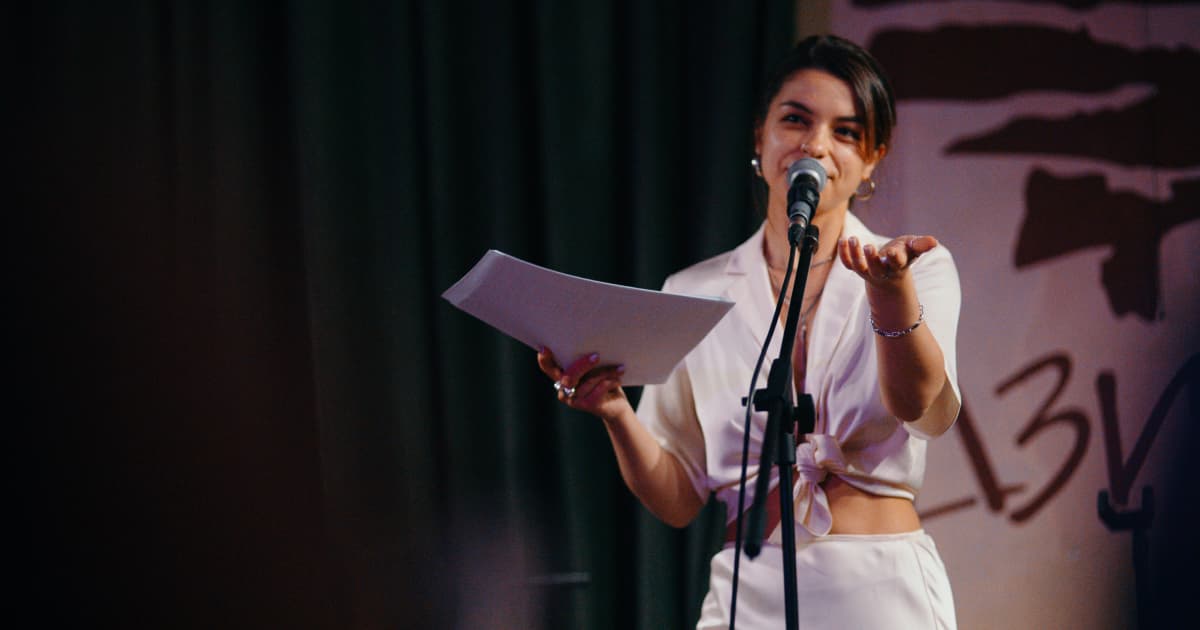
Of course, there are all kinds of experiences. Some people may linger after a performance. I protect myself from that by not staying alone after shows and asking my manager to accompany me. But my audience is grateful, intelligent, and sensitive. So, every encounter with them is a dose of dopamine for me.
I'm happy that we share a similar sense of beauty. We share a common set of values, and when my rhymes touch their hearts, it energizes me more than it exhausts me.

